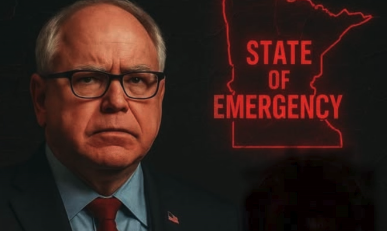State of Emergency Declared in Minnesota as National Guard Mobilizes to Combat Massive Cyberattack
Earlier this week, the city of St. Paul, Minnesota, experienced what experts are calling one of the most severe digital attacks ever launched against an American municipality. The city’s entire digital infrastructure went dark — no Wi-Fi, no servers, no communication networks — a complete blackout that crippled government operations and left residents in the dark, both figuratively and literally.
In response, Governor Tim Walz declared a state of emergency and swiftly activated the Minnesota National Guard’s cyber protection unit. Their urgent mission: to identify the extent of the breach, determine whether sensitive data was accessed or stolen, and work to restore the city’s crippled digital systems.
Mayor Melvin Carter did not mince words in describing the attack. “This was not a glitch,” Carter said in a grim statement. “It was a deliberate, coordinated assault executed by an external actor, intentionally and criminally targeting our city’s systems.”
This revelation makes clear that what St. Paul faced was no accident — it was a calculated act of cyber warfare aimed squarely at a major U.S. city’s vital infrastructure.
What is especially disturbing is how little attention the attack has garnered nationally. Unlike natural disasters or violent uprisings, this digital siege has been met with relative silence in the mainstream media. Yet, the implications are profound: an entire American city’s data may now be in the hands of hostile actors — potentially foreign adversaries or sophisticated criminal networks.
Was this assault a mere isolated incident, or a harbinger of a far more dangerous wave of cyber warfare targeting U.S. cities and critical infrastructure? The National Guard’s deployment signals that state officials are taking the threat seriously — but it also raises urgent questions about America’s readiness to defend itself in the digital age.
This is not a drill. The National Guard has boots on the ground, not to respond to a hurricane or civil unrest, but to fight a shadow war unfolding silently in cyberspace. As St. Paul works to recover, the nation must confront the new reality: cyberattacks on U.S. soil are no longer hypothetical — they are here, and they are escalating.

